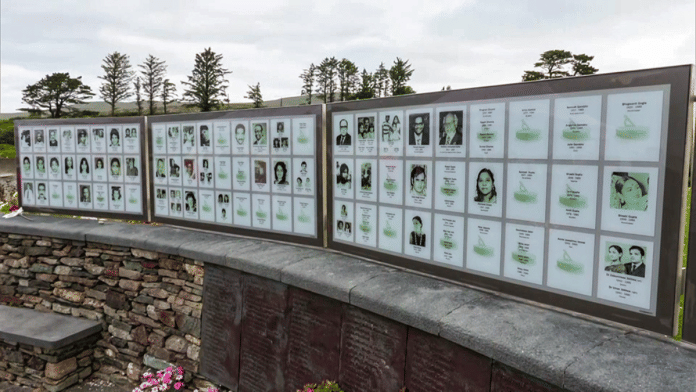New Delhi: Canadian Security Intelligence Service (CSIS) Director Daniel Rogers Thursday said the threat of violent extremism persists as one of the biggest national security concerns for his country, calling the 1985 Kanishka bombing a “truly terrible moment in Canadian history”. In his annual directorial speech, he also spoke about foreign interference, citing “transnational repression by China, India and others”.
Ottawa has accused India of being involved in transnational repression activities, including the killing of Sikh separatist Hardeep Singh Nijjar—an Indian designated terrorist—on Canadian soil. India has rejected the accusations. The matter led to a chill in ties between the two countries until Prime Minister Mark Carney assumed office in Canada earlier this year.
Rogers, however, did not explicitly mention Nijjar in his speech.
“This year marks 40 years since the worst terrorist attack in Canadian history—the bombing of Air India Flight 182 (Emperor Kanishka). This tragic event killed all 329 people on board, most of them Canadians. It was truly a terrible moment in Canadian history and serves as an important reminder of the consequences of violent extremism,” Rogers said in the Annual Speech made by the Director of the Canadian Security Intelligence Services (CSIS).
He added, “The threat of violence motivated by extreme religious, ideological or political views has changed significantly over the last 40 years, but it persists as one of Canada’s most significant national security concerns.”
The 1985 bombing of the Air India flight was the worst aviation terrorist attack globally for 16 years until the 2001 World Trade Centre attacks in the US. However, despite an expensive investigation, Canadian authorities were able to secure just a single conviction for the Air India bombing that left 329 people dead, while another bomb killed two baggage handlers at the Narita International Airport in Tokyo.
In 2010, the John Major Commission looking into the bombing of Air India Flight 182 pointed out a “series of cascading errors” including intelligence failures that led to the terrorist attack. India has long urged Ottawa to take the threats posed by Sikh separatists more seriously. The existence of transnational gangs and Sikh separatism in Canada led to a souring of ties between New Delhi and Ottawa for the last two years.
In his address Thursday, Rogers said, “When foreign states don’t share our respect for these rights and feel threatened or embarrassed by the lawful activity of individuals in Canada, they sometimes resort to direct intimidation, influence, or reprisal. We refer to this as transnational repression.”
The Director of the CSIS added: “In the past, we’ve publicly discussed transnational repression by the People’s Republic of China, India, and others. In particularly alarming cases over the last year, we’ve had to reprioritise our operations to counter the actions of Iranian intelligence services and their proxies who have targeted individuals they perceive as threats to their regime.”
In the 2024 Annual Speech, previous CSIS David Vigneault made a mention of the Nijjar killing. However, under Carney, Ottawa has focused on maintaining the dialogue surrounding law-enforcement issues as one between the appropriate agencies, rather than raising it at the highest political levels – a marked change in approach from his predecessor Justin Trudeau.
New Delhi and Ottawa have been engaged at the highest levels in recent months. Prime Minister Narendra Modi travelled to Canada in June for the G7 summit and met with Carney. Canadian Foreign Minister Anita Anand travelled to India last month, while External Affairs Minister S. Jaishankar concluded his two-day visit to the North American nation Thursday.
Security dialogue between National Security Adviser Ajit Doval and National Security and Intelligence Advisor (NSIA) Nathalie G. Drouin resumed in September, indicating renewed engagement between New Delhi and Ottawa.
(Edited by Ajeet Tiwari)
Also Read: India, Canada ties stabilise as Jaishankar-Anand meet pushes cooperation on trade, critical minerals






